150 Best Riddles for Elementary Students Fun and Engaging Brain Teasers to Boost Learning
Riddles for elementary students are not just fun puzzles; they are powerful tools for enhancing critical thinking and creativity. Engaging young minds with these brain teasers sparks their curiosity and encourages problem-solving skills in a playful manner.
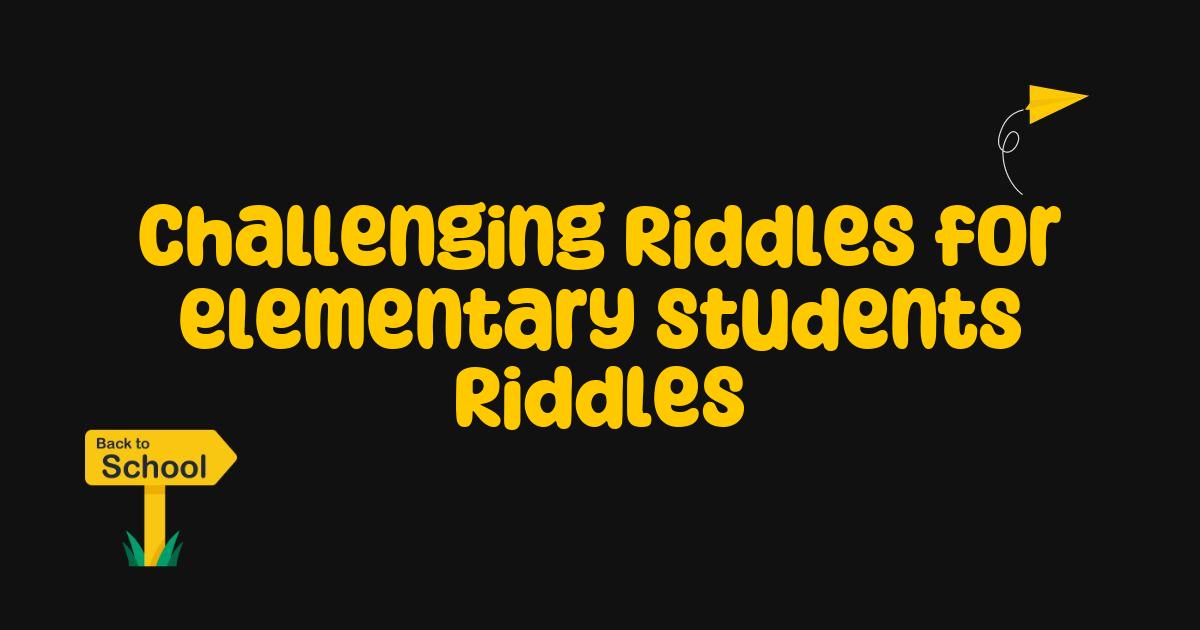
As children tackle these intriguing questions, they also improve their vocabulary and comprehension. Whether shared in the classroom or at home, riddles offer a delightful way to challenge kids while keeping learning enjoyable and interactive. Dive into the world of riddles and watch as your little ones thrive in their cognitive development!
Best Riddles for Elementary Students Fun and Engaging Brain Teasers to Boost Learning
Riddle: I have keys but open no locks. I have space but no room. I have a face but no eyes. What am I?
Answer: A keyboard.
Riddle: I can fly without wings. I can cry without eyes. Whenever I go, darkness flies. What am I?
Answer: A cloud.
Riddle: I’m tall when I’m young and short when I’m old. What am I?
Answer: A candle.
Riddle: I speak without a mouth and hear without ears. I have no body, but I come alive with the wind. What am I?
Answer: An echo.
Riddle: I run but never walk, I have a bed but never sleep. What am I?
Answer: A river.
Riddle: You see me once in June, twice in November, but not at all in May. What am I?
Answer: The letter “e.”
Riddle: I’m light as a feather, yet the strongest person can’t hold me for five minutes. What am I?
Answer: Breath.
Riddle: What has hands but can’t clap?
Answer: A clock.
Riddle: The more you take, the more you leave behind. What am I?
Answer: Footsteps.
Riddle: I go in hard, come out soft, and am never the same. What am I?
Answer: Chewing gum.
Riddle: I have branches but no fruit, trunk, or leaves. What am I?
Answer: A bank.
Riddle: What begins with T, ends with T, and has T in it?
Answer: A teapot.
Riddle: I can be cracked, made, told, and played. What am I?
Answer: A joke.
Riddle: What has a thumb and four fingers, but is not alive?
Answer: A glove.
Riddle: What can you catch but not throw?
Answer: A cold.
These riddles offer a fun challenge while being age-appropriate for elementary students!
See Also – Top 150 Christmas Riddles for Kids – Fun and Festive Holiday Puzzles
Riddles for Elementary Students: Fun Ways to Engage Young Minds
Riddles for elementary students are a delightful way to spark curiosity and critical thinking. These playful puzzles challenge young minds, encouraging creativity and problem-solving skills. By incorporating fun themes and relatable scenarios, riddles can turn learning into an exciting adventure, making them perfect for classrooms, family game nights, or solo…
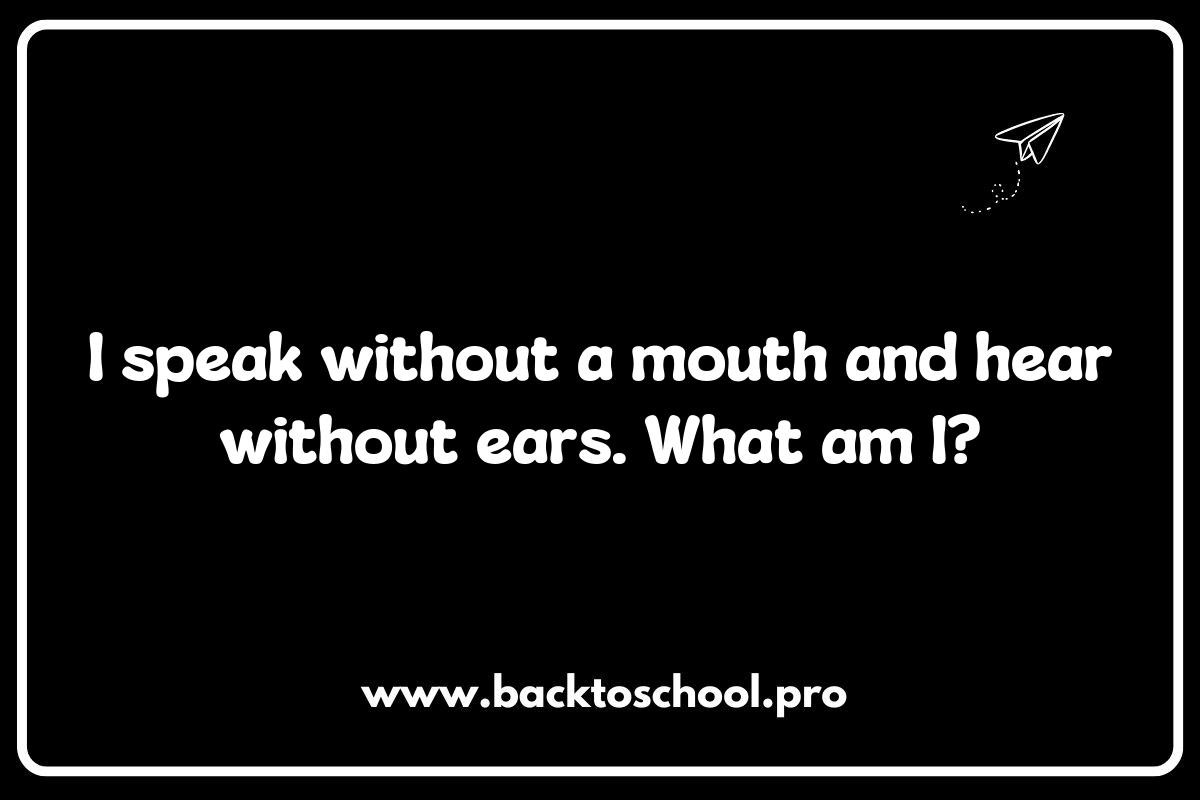
Riddle: What has keys but can’t open locks?
Answer: A piano.
Riddle: I speak without a mouth and hear without ears. What am I?
Answer: An echo.
Riddle: What has to be broken before you can use it?
Answer: An egg.
Riddle: I’m tall when I’m young, and I’m short when I’m old. What am I?
Answer: A candle.
Riddle: What begins with T, ends with T, and has T in it?
Answer: A teapot.
Riddle: What can travel around the world while staying in a corner?
Answer: A stamp.
Riddle: I have wings and I can fly, I’m not a bird, but I’m in the sky. What am I?
Answer: An airplane.
Riddle: What gets wetter as it dries?
Answer: A towel.
Riddle: I can be cracked, made, told, and played. What am I?
Answer: A joke.
Riddle: What is full of holes but still holds water?
Answer: A sponge.
Riddle: What has hands but can’t clap?
Answer: A clock.
Riddle: I have branches, but no fruit, trunk, or leaves. What am I?
Answer: A bank.
Riddle: What is so fragile that saying its name breaks it?
Answer: Silence.
Riddle: What has one eye but cannot see?
Answer: A needle.
Riddle: I fly without wings, I cry without eyes. Whenever I go, darkness flies. What am I?
Answer: A cloud.
See Also – Top 150 Fun Thanksgiving Riddles for Kids and Festive Brain Teasers
The Importance of Riddles for Elementary Students in Learning
Riddles are a fantastic tool for elementary students, sparking curiosity and critical thinking. They challenge young minds to explore language, enhance problem-solving skills, and boost cognitive development. As children unravel these playful puzzles, they also foster social interaction and creativity, making learning fun and engaging in the classroom and at…
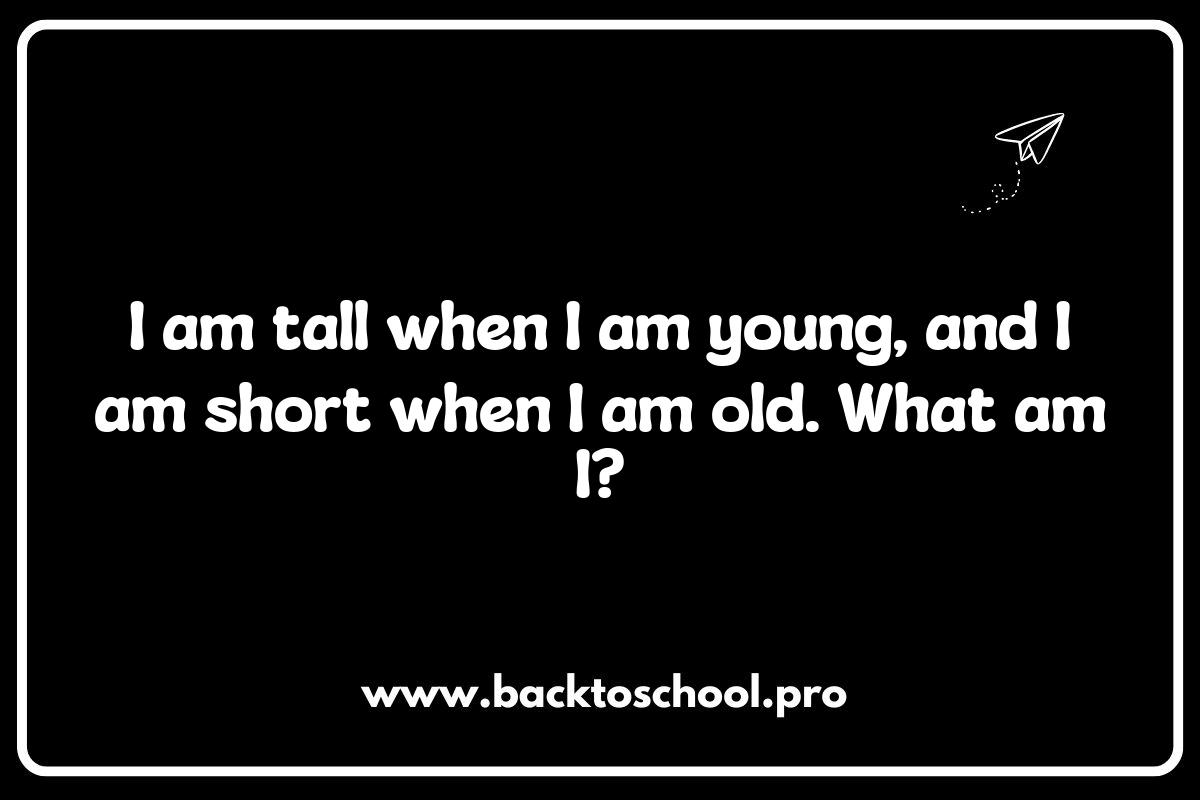
Riddle: I speak without a mouth and hear without ears. I have no body, but I come alive with the wind. What am I?
Answer: An echo.
Riddle: I can fly without wings, I can cry without eyes. Wherever I go, darkness flies. What am I?
Answer: A cloud.
Riddle: I have keys but open no locks. I have space but no room. You can enter, but you can’t go outside. What am I?
Answer: A keyboard.
Riddle: I am tall when I am young, and I am short when I am old. What am I?
Answer: A candle.
Riddle: What has to be broken before you can use it?
Answer: An egg.
Riddle: I have branches, but no leaves, no trunk, and no fruit. What am I?
Answer: A bank.
Riddle: What begins with T, ends with T, and has T in it?
Answer: A teapot.
Riddle: The more you take, the more you leave behind. What am I?
Answer: Footsteps.
Riddle: What comes once in a minute, twice in a moment, but never in a thousand years?
Answer: The letter “M.”
Riddle: I am full of holes but still hold water. What am I?
Answer: A sponge.
Riddle: What has hands but can’t clap?
Answer: A clock.
Riddle: I can be cracked, made, told, and played. What am I?
Answer: A joke.
Riddle: What is so fragile that saying its name breaks it?
Answer: Silence.
Riddle: I am a word of letters three, add two and fewer there will be. What am I?
Answer: Few.
Riddle: What has one eye but cannot see?
Answer: A needle.
See Also – Best Halloween Riddles for Kids: Fun and Spooky Puzzles
Top 10 Easy Riddles for Elementary Students to Boost Critical Thinking
Unlock the fun of learning with our “Top 10 Easy Riddles for Elementary Students”! These clever challenges not only spark curiosity but also enhance critical thinking skills. Perfect for brightening up a classroom or family game night, these riddles encourage kids to think creatively and solve problems while having a…
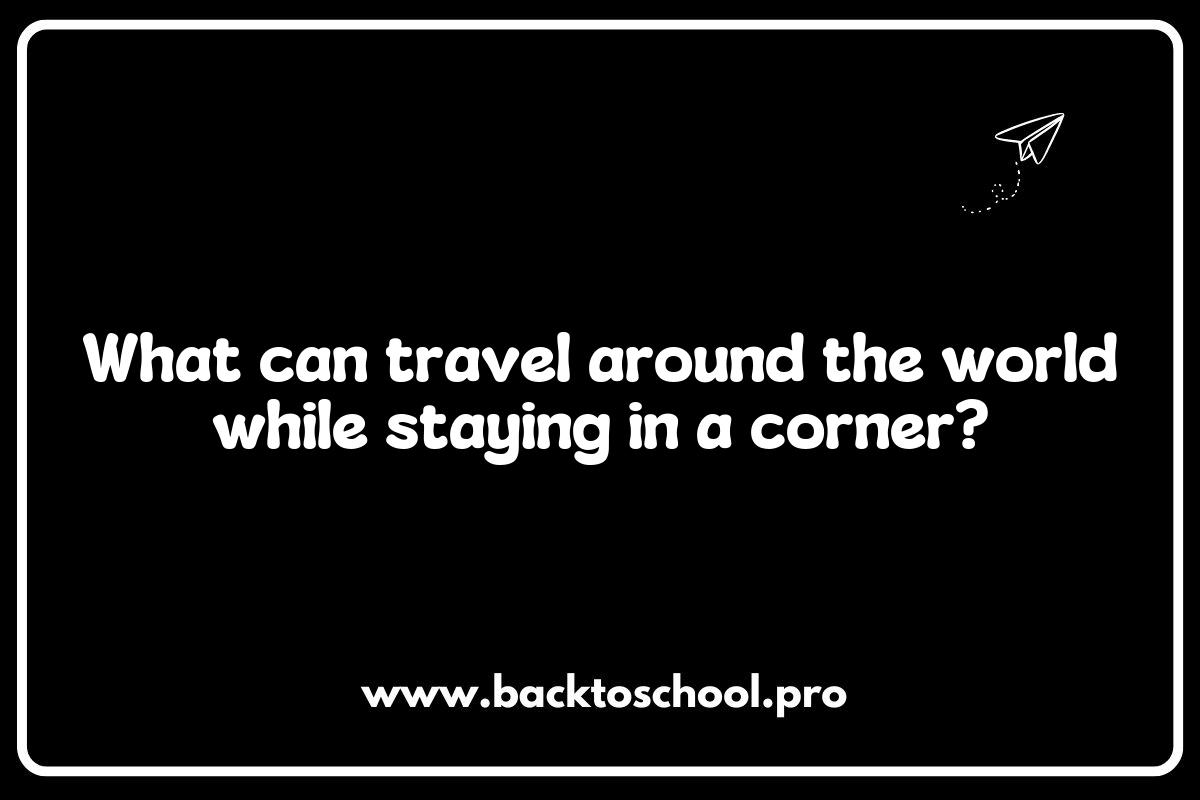
Riddle: What has keys but can’t open locks?
Answer: A piano.
Riddle: I’m tall when I’m young, and I’m short when I’m old. What am I?
Answer: A candle.
Riddle: What has hands but can’t clap?
Answer: A clock.
Riddle: I speak without a mouth and hear without ears. What am I?
Answer: An echo.
Riddle: What begins with T, ends with T, and has T in it?
Answer: A teapot.
Riddle: I’m light as a feather, yet the strongest person can’t hold me for five minutes. What am I?
Answer: Breath.
Riddle: What can travel around the world while staying in a corner?
Answer: A stamp.
Riddle: I have branches, but no fruit, trunk, or leaves. What am I?
Answer: A bank.
Riddle: What is full of holes but still holds water?
Answer: A sponge.
Riddle: What can you catch but not throw?
Answer: A cold.
Riddle: What has a face and two hands but no arms or legs?
Answer: A clock.
Riddle: I go up and down but never move. What am I?
Answer: A staircase.
Riddle: What is so fragile that saying its name breaks it?
Answer: Silence.
Riddle: What has words but never speaks?
Answer: A book.
Riddle: I can be cracked, made, told, and played. What am I?
Answer: A joke.
See Also – Top 150 Engaging Educational Riddles for Kids to Enhance Learning and Enjoyment
How Riddles for Elementary Students Foster Creativity and Imagination
Riddles for elementary students ignite creativity and imagination by transforming problem-solving into a playful adventure. As kids tackle clever clues, they learn to think outside the box, enhancing their critical thinking skills. This fun engagement not only boosts their confidence but also encourages them to express their unique ideas and…
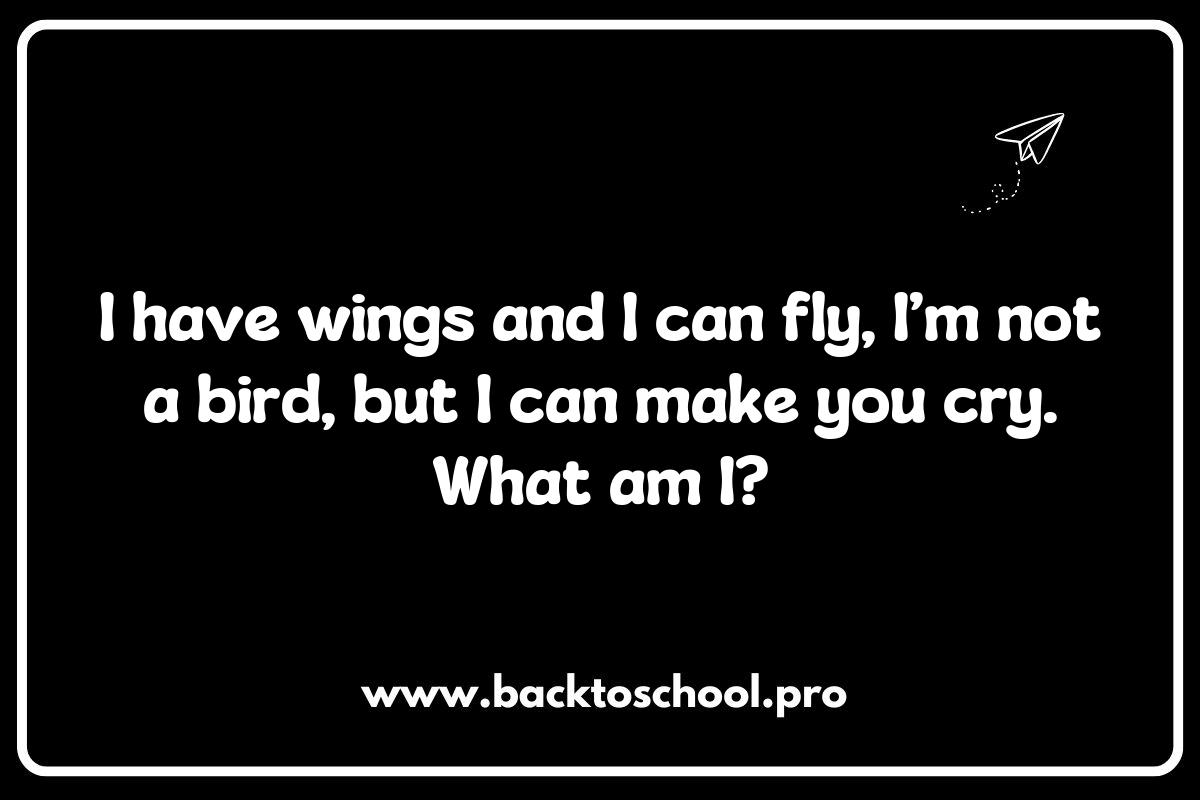
Riddle: I’m tall when I’m young, and I’m short when I’m old. What am I?
Answer: A candle.
Riddle: What has keys but can’t open locks?
Answer: A piano.
Riddle: I have wings and I can fly, I’m not a bird, but I can make you cry. What am I?
Answer: A butterfly.
Riddle: What has hands but can’t clap?
Answer: A clock.
Riddle: I speak without a mouth and hear without ears. What am I?
Answer: An echo.
Riddle: What has a face and two hands but no arms or legs?
Answer: A clock.
Riddle: I’m full of holes but still hold water. What am I?
Answer: A sponge.
Riddle: What can travel around the world while staying in a corner?
Answer: A stamp.
Riddle: I go up and down but never move. What am I?
Answer: A staircase.
Riddle: What has to be broken before you can use it?
Answer: An egg.
Riddle: What begins with T, ends with T, and has T in it?
Answer: A teapot.
Riddle: I’m light as a feather, yet the strongest person can’t hold me for five minutes. What am I?
Answer: Breath.
Riddle: What gets wetter as it dries?
Answer: A towel.
Riddle: I have many teeth but cannot bite. What am I?
Answer: A comb.
Riddle: I run but never walk, I have a bed but never sleep. What am I?
Answer: A river.
See Also – Top 150 Holiday Riddles for Kids to Enjoy Festive Fun and Brain Teasers
Interactive Games Using Riddles for Elementary Students in the Classroom
Interactive games using riddles in the classroom can spark excitement and creativity among elementary students. By solving fun and age-appropriate riddles, children enhance their critical thinking and teamwork skills while enjoying a lively atmosphere. These engaging activities also promote problem-solving and boost confidence, making learning both effective and entertaining!
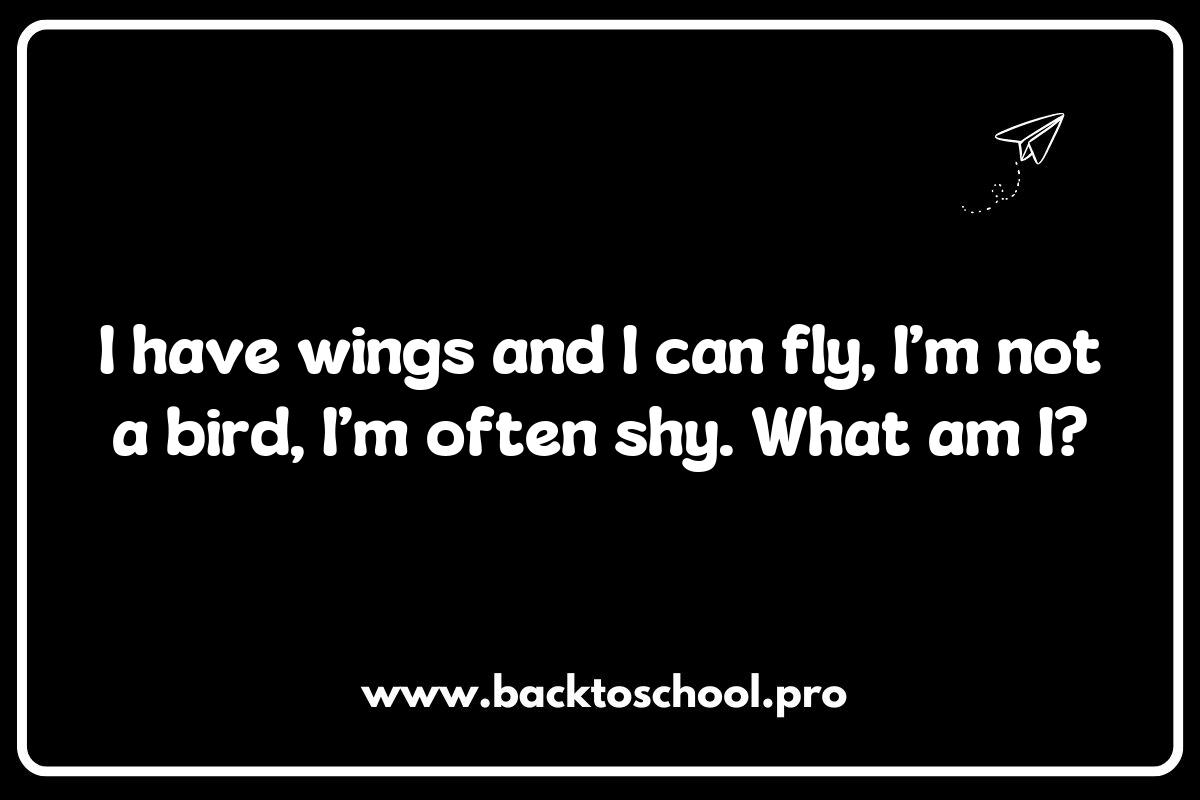
Riddle: What has keys but can’t open locks?
Answer: A piano.
Riddle: I have wings and I can fly, I’m not a bird, I’m often shy. What am I?
Answer: A butterfly.
Riddle: What has hands but cannot clap?
Answer: A clock.
Riddle: I’m tall when I’m young, and I’m short when I’m old. What am I?
Answer: A candle.
Riddle: What begins with T, ends with T, and has T in it?
Answer: A teapot.
Riddle: I speak without a mouth and hear without ears. What am I?
Answer: An echo.
Riddle: What has to be broken before you can use it?
Answer: An egg.
Riddle: I’m light as a feather, yet the strongest person can’t hold me for five minutes. What am I?
Answer: Breath.
Riddle: I go all around the world but never leave the corner. What am I?
Answer: A stamp.
Riddle: What can travel around the world while staying in a corner?
Answer: A postage stamp.
Riddle: I’m full of holes but still hold water. What am I?
Answer: A sponge.
Riddle: What gets wetter as it dries?
Answer: A towel.
Riddle: What has one eye but can’t see?
Answer: A needle.
Riddle: I can be cracked, made, told, and played. What am I?
Answer: A joke.
Riddle: What has a neck but no head?
Answer: A bottle.
These riddles can help spark curiosity and stimulate critical thinking among elementary students!
See Also – Top 150 Fun Riddles for Kids to Ignite Imagination and Laughter
Riddles for Elementary Students: Enhancing Vocabulary and Language Skills
Riddles for elementary students are a fun and interactive way to boost vocabulary and language skills. These playful puzzles challenge young minds to think critically and creatively, while also expanding their word knowledge. Engaging with riddles fosters a love for language, making learning exciting and memorable for little learners.
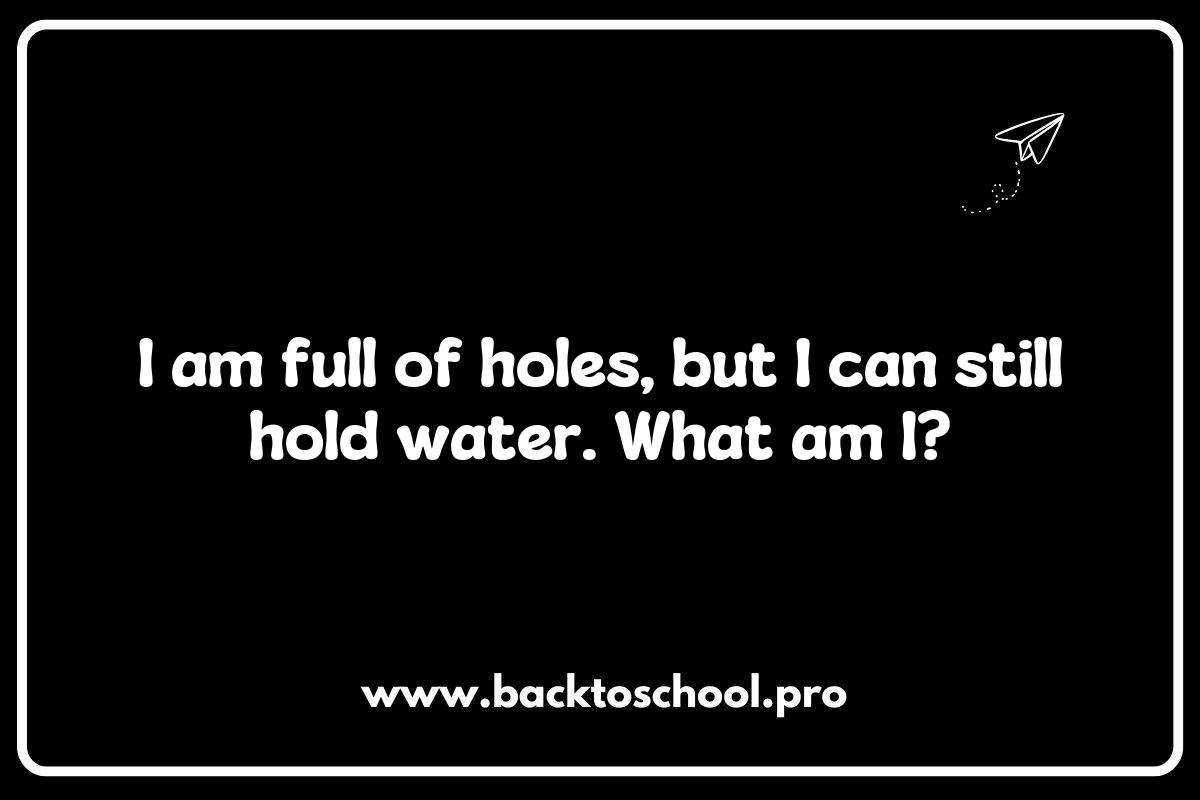
Riddle: I speak without a mouth and hear without ears. I have no body, but I come alive with the wind. What am I?
Answer: An echo.
Riddle: What has keys but can’t open locks?
Answer: A piano.
Riddle: I can be cracked, made, told, and played. What am I?
Answer: A joke.
Riddle: What begins with T, ends with T, and has T in it?
Answer: A teapot.
Riddle: I fly without wings, I cry without eyes. Whenever I go, darkness flies. What am I?
Answer: A cloud.
Riddle: What has a face and two hands but no arms or legs?
Answer: A clock.
Riddle: I have branches, but no fruit, trunk, or leaves. What am I?
Answer: A bank.
Riddle: What can travel around the world while staying in a corner?
Answer: A stamp.
Riddle: The more you take, the more you leave behind. What am I?
Answer: Footsteps.
Riddle: What has to be broken before you can use it?
Answer: An egg.
Riddle: I am full of holes, but I can still hold water. What am I?
Answer: A sponge.
Riddle: What has one eye but can’t see?
Answer: A needle.
Riddle: I go in hard, come out soft, and am never the same. What am I?
Answer: Chewing gum.
Riddle: What has words, but never speaks?
Answer: A book.
Riddle: I can be long or short; I can be grown or bought; I can be painted or left bare. What am I?
Answer: A nail.
See Also – Explore 150 Engaging Word Riddles for Kids to Spark Creativity and Fun
Seasonal Riddles for Elementary Students: Celebrating Holidays with Fun
Seasonal riddles for elementary students bring joy to holiday celebrations while sparking creativity and critical thinking! These fun brain-teasers, themed around various festivities, encourage kids to explore seasonal traditions. By solving riddles, students not only enhance their problem-solving skills but also enjoy a delightful way to connect with their peers…
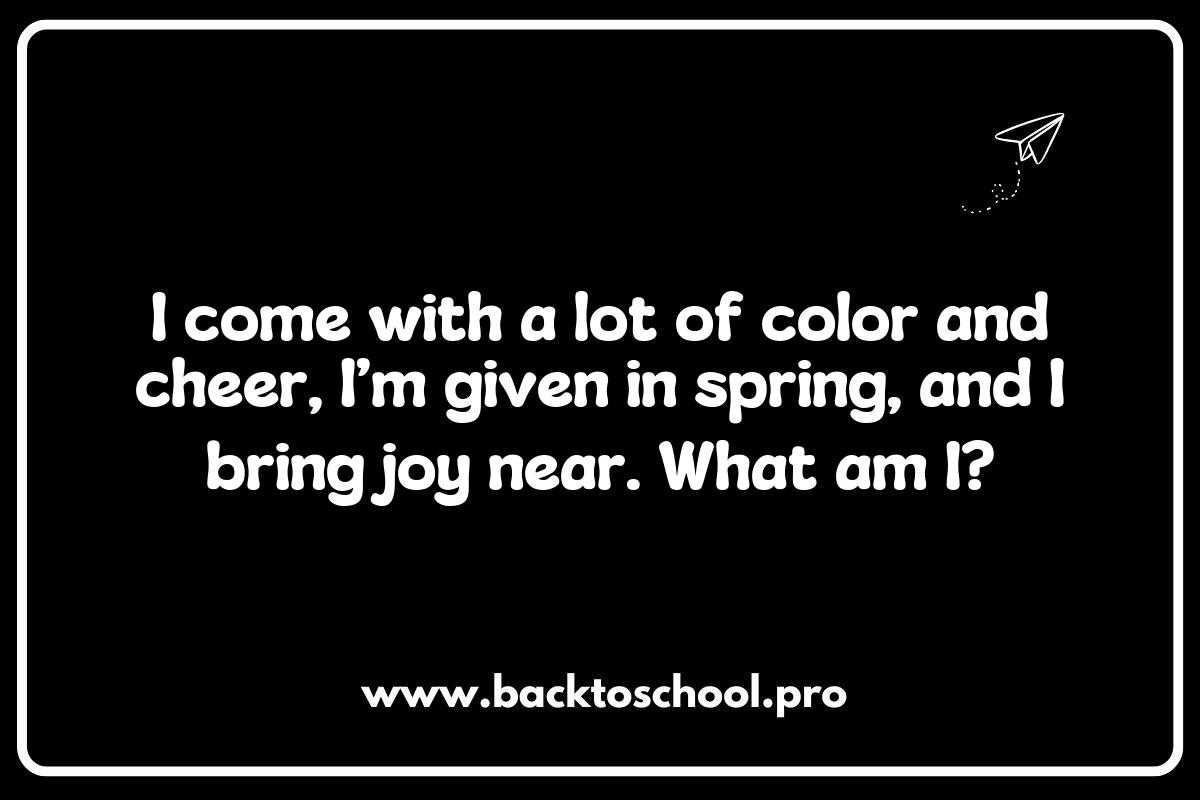
Riddle: What has a face and two hands but no arms or legs?
Answer: A clock.
Riddle: I’m tall when I’m young, and I’m short when I’m old. What am I?
Answer: A candle.
Riddle: What has a heart that doesn’t beat?
Answer: An artichoke.
Riddle: I come with a lot of color and cheer, I’m given in spring, and I bring joy near. What am I?
Answer: A bouquet of flowers.
Riddle: I can fly without wings, I can cry without eyes. Wherever I go, darkness flies. What am I?
Answer: A cloud.
Riddle: I’m found on the ground or in the sky, I get tossed when the weather is dry. What am I?
Answer: A kite.
Riddle: What gets wetter as it dries?
Answer: A towel.
Riddle: I have branches, but I’m not a tree. I have a trunk, but I’m not a car. What am I?
Answer: A bank.
Riddle: I can be cracked, made, told, and played. What am I?
Answer: A joke.
Riddle: What has keys but can’t open locks?
Answer: A piano.
Riddle: I’m red, green, or yellow, and I’m often a treat, especially in pies or when baked, I’m something to eat. What am I?
Answer: An apple.
Riddle: What has ears but cannot hear?
Answer: Corn.
Riddle: I’m round and sweet, and you’ll find me in a pie. I’m often picked in autumn, oh my! What am I?
Answer: A pumpkin.
Riddle: What do you call a snowman with a six-pack?
Answer: An abdominal snowman.
Riddle: I have a neck but no head, and I wear a cap. What am I?
Answer: A bottle.
See Also – Engaging Math Riddles for Kids to Enhance Problem-Solving Skills
Cultural Riddles for Elementary Students: Exploring Diversity Through Fun
Cultural riddles for elementary students are a delightful way to explore diversity while having fun! These playful puzzles introduce kids to different cultures, traditions, and languages through engaging questions. By solving riddles, students not only sharpen their critical thinking but also celebrate the rich tapestry of our world, fostering curiosity…
See Also – Engaging Animal Riddles for Kids: 150 Fun and Educational Challenges
Creating Your Own Riddles for Elementary Students: A Step-by-Step Guide
Creating your own riddles for elementary students can be a delightful adventure! Start by choosing simple themes they love, like animals or superheroes. Use playful language and clear clues. Test your riddles on friends for feedback, and watch as young minds light up with excitement when they solve your fun…
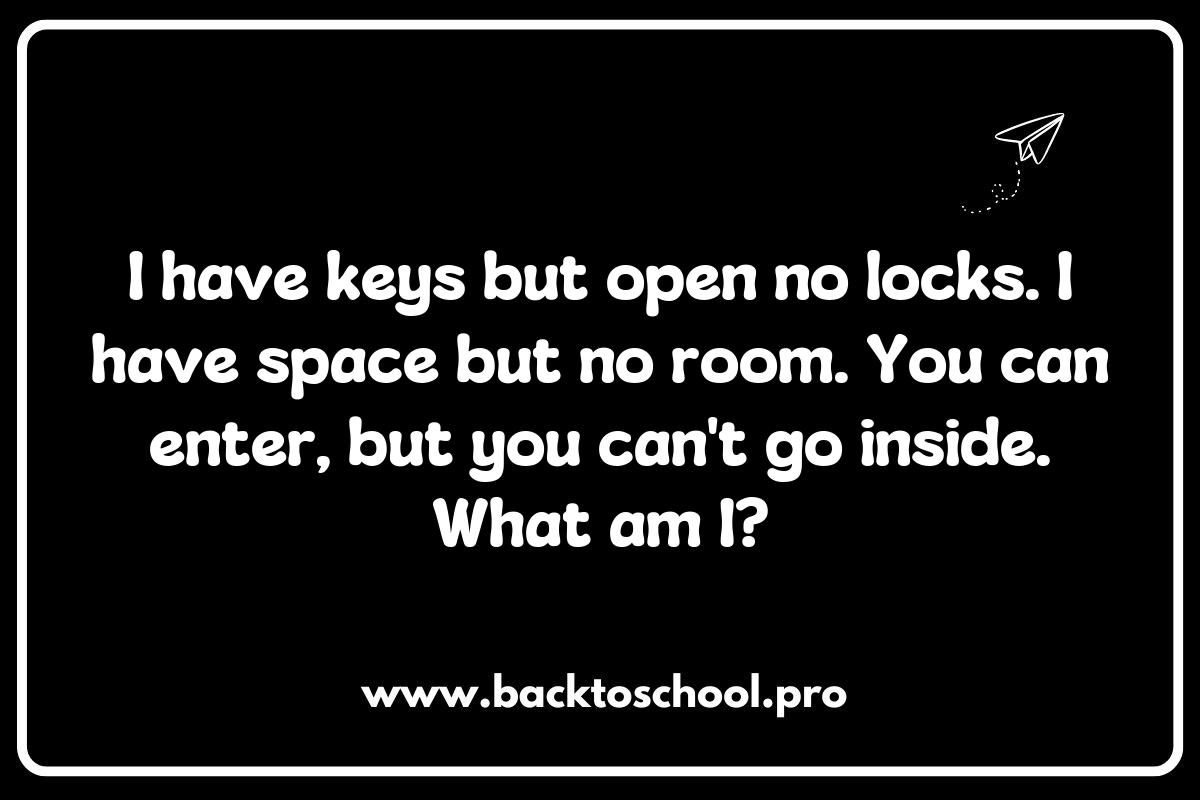
Riddle: I have keys but open no locks. I have space but no room. You can enter, but you can’t go inside. What am I?
Answer: A keyboard.
Riddle: I can be cracked, made, told, and played. What am I?
Answer: A joke.
Riddle: What has hands but can’t clap?
Answer: A clock.
Riddle: I fly without wings, I cry without eyes. Whenever I go, darkness flies. What am I?
Answer: A cloud.
Riddle: I’m tall when I’m young, and I’m short when I’m old. What am I?
Answer: A candle.
Riddle: What begins with T, ends with T, and has T in it?
Answer: A teapot.
Riddle: The more you take, the more you leave behind. What am I?
Answer: Footsteps.
Riddle: What has to be broken before you can use it?
Answer: An egg.
Riddle: I have a face and two hands, but no arms or legs. What am I?
Answer: A clock.
Riddle: What has many teeth but cannot bite?
Answer: A comb.
Riddle: I can be found in the ocean, but I am not a fish. I can be on your plate, but I am not food. What am I?
Answer: A shell.
Riddle: What is full of holes but still holds water?
Answer: A sponge.
Riddle: What has one eye but can’t see?
Answer: A needle.
Riddle: What runs around the yard without moving?
Answer: A fence.
Riddle: What comes down but never goes up?
Answer: Rain.
Feel free to use these riddles as part of your guide for creating engaging content for elementary students!
See Also – Top 150 Engaging Brain Teasers and Puzzles for Kids to Boost Learning
Riddles for Elementary Students: Tips for Parents and Educators to Encourage Problem Solving
Riddles are a fantastic way to spark curiosity and enhance problem-solving skills in elementary students! Parents and educators can encourage this by introducing fun, age-appropriate riddles during playtime or class discussions. Engaging children in brainstorming sessions fosters teamwork and critical thinking, making learning enjoyable while sharpening their minds.
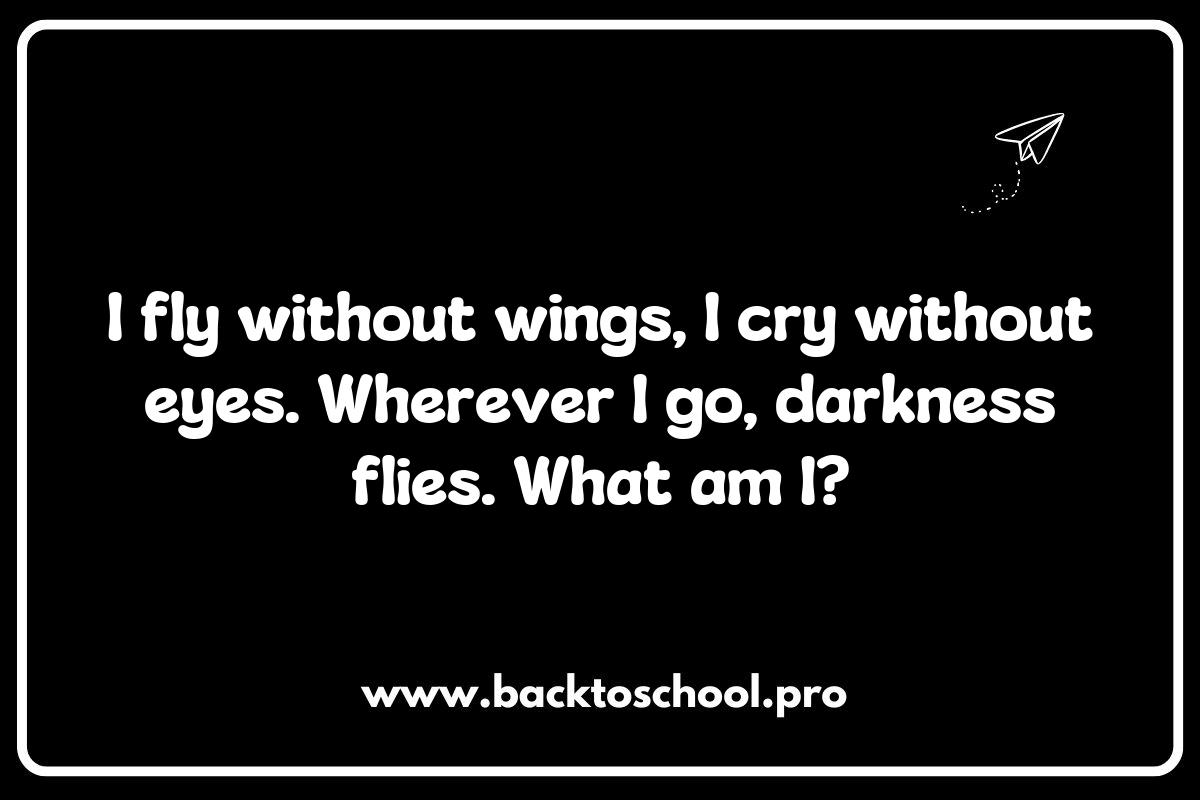
Riddle: What has keys but can’t open locks?
Answer: A piano.
Riddle: I’m tall when I’m young, and I’m short when I’m old. What am I?
Answer: A candle.
Riddle: What begins with T, ends with T, and has T in it?
Answer: A teapot.
Riddle: I fly without wings, I cry without eyes. Wherever I go, darkness flies. What am I?
Answer: A cloud.
Riddle: What has a heart that doesn’t beat?
Answer: An artichoke.
Riddle: I have branches, but no fruit, trunk, or leaves. What am I?
Answer: A bank.
Riddle: What can you catch but not throw?
Answer: A cold.
Riddle: I’m full of holes, but I can still hold water. What am I?
Answer: A sponge.
Riddle: What is so fragile that saying its name breaks it?
Answer: Silence.
Riddle: What has hands but cannot clap?
Answer: A clock.
Riddle: I go in hard, come out soft, and am never the same. What am I?
Answer: Chewing gum.
Riddle: What has one eye but can’t see?
Answer: A needle.
Riddle: What runs around the yard without moving?
Answer: A fence.
Riddle: I have four legs in the morning, two legs in the afternoon, and three legs in the evening. What am I?
Answer: A human (representing stages of life).
Riddle: What is always in front of you but can’t be seen?
Answer: The future.





